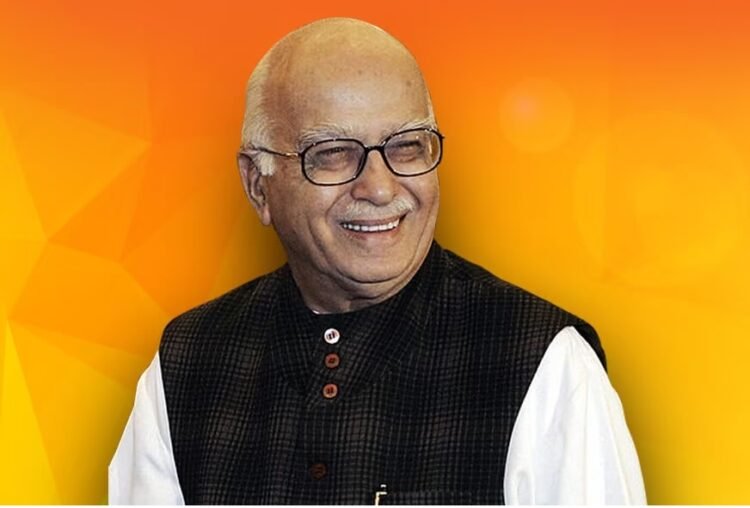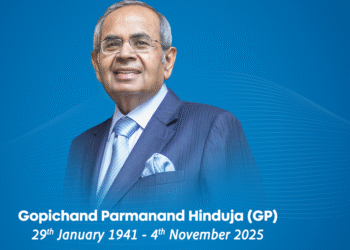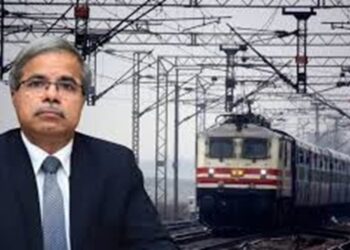Lal Krishna Advani: A Life of Leadership and Service
Biography of Lal Krishna Advani: Lal Krishna Advani, popularly known as L. K. Advani, is one of the most influential and respected leaders of India’s political landscape. He has served as the Deputy Prime Minister, Home Minister, Leader of the Opposition, and President of the Bharatiya Janata Party (BJP), among other positions. He is widely regarded as a champion of democracy, nationalism, and development, and has played a pivotal role in shaping the BJP’s ideology and agenda. He is also known for his courage, integrity, and dedication to the nation.
Biography of Lal Krishna Advani
| Category | Information |
|---|---|
| Full Name | Lal Krishna Advani |
| Date of Birth | November 8, 1927 |
| Place of Birth | Karachi, British India (present-day Pakistan) |
| Education | St. Patrick’s High School, Karachi; D.G. National College, Hyderabad; Government Law College, Mumbai |
| Political Party | Bharatiya Janata Party (BJP) |
| Key Positions Held | Deputy Prime Minister of India (2002-2004), Minister of Home Affairs (1998-2004), Leader of the Opposition (2004-2009), President of Bharatiya Jana Sangh (BJS) (1973-1977) |
| Significant Contributions | Co-founded BJP, spearheaded Ram Rath Yatra, played key role in building BJP into a national force |
| Controversies | Ram Rath Yatra and its role in Ayodhya demolition, Godhra riots and Gujarat violence |
| Legacy | Complex and contested figure, admired for political acumen but criticized for divisive rhetoric and actions |
| Current Status | Retired from active politics in 2015, remains a respected figure within BJP and Hindutva movement |
Who is Lal Krishna Advani?
Lal Krishna Advani is an Indian politician who served as the 7th Deputy Prime Minister of India from 2002 to 2004. He is one of the co-founders of the Bharatiya Janata Party (BJP) and a member of the Rashtriya Swayamsevak Sangh (RSS), a right-wing Hindu nationalist volunteer organisation. He is also the longest serving Minister of Home Affairs and Leader of the Opposition in the Lok Sabha. He is widely regarded as the chief architect of the Ram Janmabhoomi movement, which culminated in the construction of the Ram Mandir in Ayodhya.
Early Life and Education
L. K. Advani was born on 8 November 1927 in Karachi, in the Sindh province of British India (now in Pakistan). His father, Kishanchand Advani, was a businessman and his mother, Gyani Advani, was a homemaker. He had six siblings and grew up in a Sindhi Hindu family. He completed his schooling from Saint Patrick’s High School in Karachi, where he excelled in academics and extracurricular activities. He was also influenced by the nationalist movement and joined the Rashtriya Swayamsevak Sangh (RSS), a right-wing Hindu volunteer organization, at the age of 14.
After the partition of India in 1947, Advani and his family migrated to India and settled in Rajasthan. He later moved to Mumbai, where he graduated in law from the Government Law College. He also worked as a journalist and editor for various newspapers and magazines, such as Organiser, Rashtra Dharma, and Panchjanya.
Political Career – Lal Krishna Advani
| Period | Position | Party | Significant Events |
|---|---|---|---|
| 1947-1970 | Activist | Rashtriya Swayamsevak Sangh (RSS) | Joined RSS at a young age, worked in Rajasthan and Delhi |
| 1970-1989 | Member of Rajya Sabha | Bharatiya Jana Sangh (BJS) | Elected to Rajya Sabha (upper house of parliament), became BJS president (1973-1977) |
| 1980-1986 | General Secretary | Bharatiya Janata Party (BJP) | Co-founded BJP, organized anti-Emergency movement campaigns |
| 1986-1993 | President | BJP | Led BJP’s expansion, spearheaded opposition to Rajiv Gandhi government |
| 1989-1991 | Member of Lok Sabha (lower house) | BJP | Elected to Lok Sabha, served as Leader of the Opposition |
| 1990 | Ram Rath Yatra | BJP | Controversial chariot pilgrimage mobilizing support for Ram temple in Ayodhya |
| 1998-2004 | Minister of Home Affairs | BJP | Held key portfolios under Vajpayee government, marred by Godhra riots and Gujarat violence |
| 2002-2004 | Deputy Prime Minister | BJP | Second-in-command to Vajpayee, responsible for various government initiatives |
| 2004-2009 | Leader of the Opposition | BJP | Led opposition after BJP’s defeat |
| 2009 | Prime Ministerial Candidate | BJP | Lost general elections but consolidated BJP’s position |
| 2015 | Retired from active politics | BJP | Remains influential figure within the party |
Advani’s political career began in 1951, when he became a member of the Bharatiya Jana Sangh (BJS), a Hindu nationalist party founded by Shyama Prasad Mookerjee. He rose through the ranks of the party and held various positions, such as the secretary, general secretary, and president of the BJS. He also became a member of the Rajya Sabha, the upper house of the Indian Parliament, from Delhi, Gujarat, and Madhya Pradesh, between 1970 and 1989.
In 1977, Advani was elected to the Lok Sabha, the lower house of the Parliament, from New Delhi, as a candidate of the Janata Party, a coalition of anti-Congress parties that included the BJS. He also served as the Minister of Information and Broadcasting in the Morarji Desai government, and was instrumental in restoring the freedom of the press and the autonomy of the public broadcaster after the Emergency imposed by Indira Gandhi.
In 1980, Advani, along with Atal Bihari Vajpayee and other former BJS leaders, founded the Bharatiya Janata Party (BJP), a successor of the BJS. He became the president of the BJP in 1986 and led the party to become a major force in Indian politics. He also launched several campaigns and movements to mobilize the masses and highlight the issues of national security, cultural identity, and social justice. Some of these include the Ram Rath Yatra, the Somnath to Ayodhya march for the construction of a Ram temple at the disputed site of the Babri Masjid, the Swadeshi Jagaran Manch, a platform for promoting indigenous industries and products, and the Bharat Uday Yatra, a nationwide tour to showcase the achievements of the BJP-led government.
Advani became the Leader of the Opposition in the Lok Sabha in 1990 and again in 2004. He also served as the Home Minister of India from 1998 to 2004, and the Deputy Prime Minister of India from 2002 to 2004, in the BJP-led National Democratic Alliance (NDA) government headed by Vajpayee. As the Home Minister, he was responsible for strengthening the internal security, combating terrorism, improving the relations with the neighboring countries, and initiating various reforms in the police and judicial systems. As the Deputy Prime Minister, he also handled the portfolios of Coal and Mines, and Personnel, Public Grievances and Pensions.
Advani was the prime ministerial candidate of the BJP in the 2009 general elections, but the party lost to the Congress-led United Progressive Alliance (UPA). He continued to be the Leader of the Opposition till 2009, when he stepped down and was succeeded by Sushma Swaraj. He remained a senior leader and a mentor of the BJP, and was elected to the Lok Sabha from Gandhinagar, Gujarat, for six consecutive terms from 1998 to 2019. He also served as the chairman of the BJP Parliamentary Party and the NDA Working Committee. He retired from active politics in 2019, and was conferred the Padma Vibhushan, the second-highest civilian award of India, in 2015.
Rath Yatras: L. K. Advani
Rath Yatras were frequently organized by Advani to enhance the popularity of the BJP and consolidate the Hindutva ideology. He orchestrated a total of six processions throughout the country, initiating the first one in 1990.
Ram Rath Yatra
Advani commenced his inaugural yatra from Somnath in Gujarat on 25 September 1990, concluding at Ayodhya on 30 October 1990. The procession was linked to the dispute at the Ram Janmabhoomi site in Ayodhya and was halted in Bihar by then Chief Minister Lalu Yadav. Advani himself was arrested on the orders of V. P. Singh, the Prime Minister of India at that time.
Janadesh Yatra
Four processions, starting on 11 September 1993 from four corners of the country, were organized. Advani led the yatra from Mysore in South India. Traversing through 14 states and two Union Territories, the processions aimed to seek public support against two bills, the Constitution 80th Amendment Bill and the Representation of People (Amendment) Bill, converging at Bhopal on 25 September.
Swarna Jayanti Rath Yatra
Conducted between May and July 1997, this procession celebrated 50 years of Indian Independence and aimed to present the BJP as a party dedicated to good governance.
Bharat Uday Yatra
This yatra occurred in the lead-up to the 2004 elections.
Bharat Suraksha Yatra
Launched nationwide from 6 April to 10 May 2006, this campaign consisted of two yatras – one led by Advani from Dwaraka in Gujarat to Delhi and the other led by Rajnath Singh from Puri to Delhi. The focus was on combating left-wing terrorism, minority politics, price rise, corruption, and the protection of democracy.
Jan Chetna Yatra
The last of the yatras was initiated on 11 October 2011 from Sitab Diara in Bihar. Its purpose was to mobilize public opinion against the corruption of the then-ruling UPA government and to promote the BJP’s agenda of good governance and clean politics.
Positions Held by L.K. Advani
L.K. Advani, a stalwart in Indian politics, held a myriad of significant positions throughout his illustrious career. From chairing the Metropolitan Council in Delhi to serving as Deputy Prime Minister of India, his journey reflects a deep and enduring commitment to public service.
| Year | Position |
|---|---|
| 1967–70 | Chairman, Metropolitan Council, Delhi |
| 1970–72 | President, Bharatiya Jana Sangh (BJS), Delhi |
| 1970–76 | First term, Rajya Sabha |
| 1973–77 | President, Bharatiya Jana Sangh |
| 1976–82 | Second term, Rajya Sabha |
| 1977 | General-Secretary, Janata Party |
| 1977–79 | Union Cabinet Minister, Ministry of Information and Broadcasting |
| 1977–79 | Leader of the House, Rajya Sabha |
| 1980–86 | General Secretary, Bharatiya Janata Party (BJP) |
| 1980–86 | Leader, Bharatiya Janata Party, Rajya Sabha |
| 1976–82 | Third term, Rajya Sabha |
| 1986–91 | President, Bharatiya Janata Party |
| 1988–89 | Fourth term, Rajya Sabha |
| 1989-91 | Elected to 9th Lok Sabha (first term) and Leader of the Opposition, Lok Sabha |
| 1991 | Elected to 10th Lok Sabha (second term) |
| 1991–93 | Leader of the Opposition, Lok Sabha |
| 1993–98 | President, Bharatiya Janata Party |
| 1998 | Elected to 12th Lok Sabha (third term) |
| 1998–99 | Union Cabinet Minister, Home Affairs |
| 1999 | Elected to 13th Lok Sabha (fourth term) |
| 1999–2004 | Union Cabinet Minister, Home Affairs |
| 2002–2004 | Deputy Prime Minister of India |
| 2002 | Union Cabinet Minister, Coal and Mines |
| 2003–2004 | Union Cabinet Minister, Personnel, Pensions and Public Grievances |
| 2004 | Elected to 14th Lok Sabha (fifth term) |
| 2009 | Elected to 15th Lok Sabha (sixth term) |
| 2009 | Leader of Opposition, Lok Sabha |
| 2014 | Elected to 16th Lok Sabha (seventh term) |
Awards: L.K. Advani
Padma Vibhushan (2015)
India’s second-highest civilian award, recognizing exceptional and distinguished service in any field.
Personal Life and Legacy
Advani married Kamla Advani in 1965, and they had two children, Pratibha and Jayant. Kamla Advani passed away in 2016 due to a cardiac arrest. Advani is known for his simple and austere lifestyle, and his love for books, movies, and music. He is also an avid blogger and has written several books, such as My Country My Life, A Prisoner’s Scrap-Book, and My Take.
Advani is widely regarded as one of the most influential and respected leaders of India, who has contributed immensely to the growth and development of the nation. He is also credited with transforming the BJP from a marginal party to a dominant force in Indian politics, and creating a strong and loyal base of supporters across the country. He is admired for his vision, conviction, and courage, and his role in shaping the BJP’s ideology and agenda. He is also respected for his statesmanship, pragmatism, and moderation, and his efforts to build a consensus and a dialogue among various sections of the society. He is considered as a mentor and a guide by many leaders and workers of the BJP, and a role model and an inspiration by millions of Indians.






















